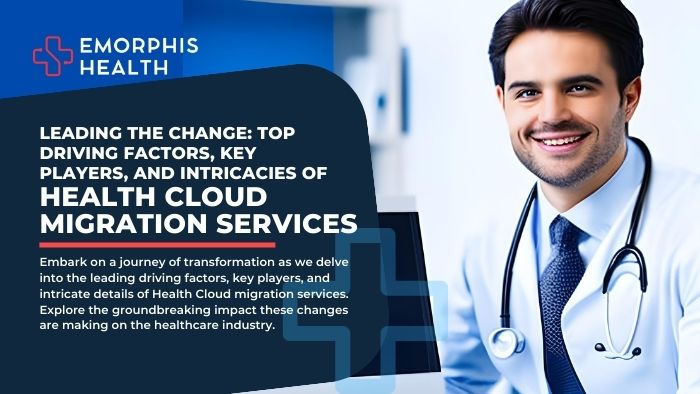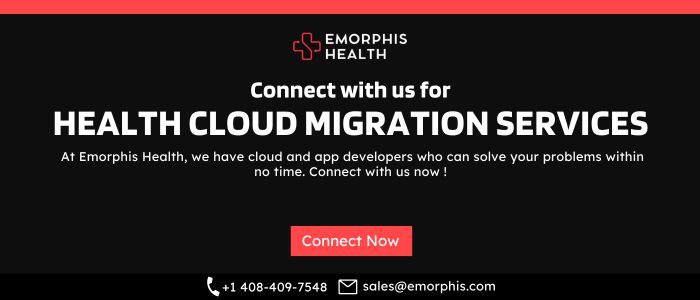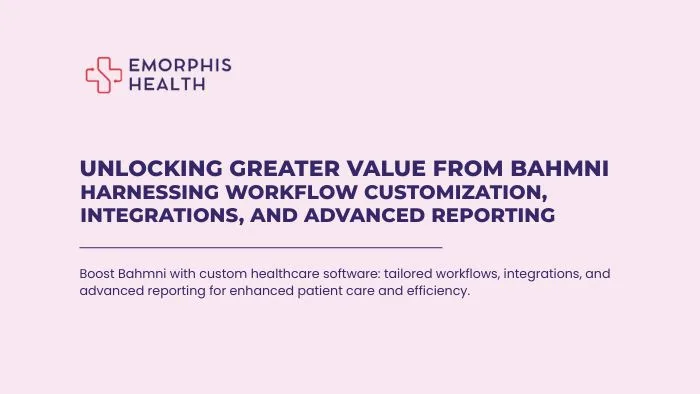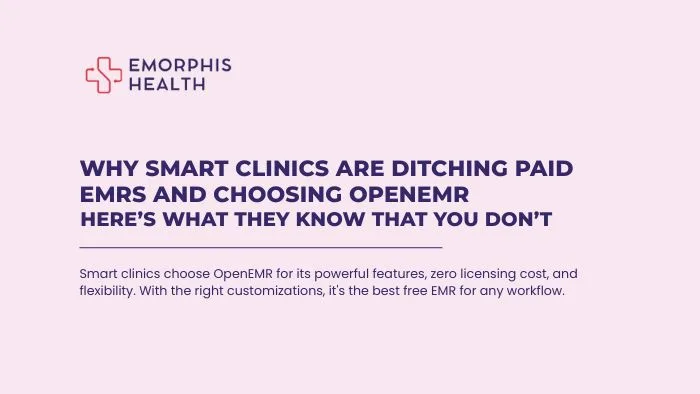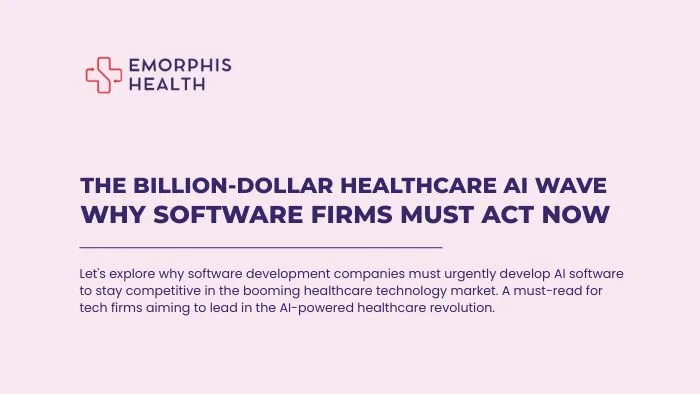Understanding Health Cloud
See Contents
According to the Research and Markets Global Healthcare Cloud Market Report 2021, the market is anticipated to reach a value of $52.30 billion by 2026, a significant increase from $11.59 billion in 2020. The increasing adoption of Software-as-a-Service (SaaS) cloud services, which accounted for a market share of 63.7% in 2020, is the driving force behind this impressive growth.
The healthcare industry is witnessing a surge in providers and payors transitioning to SaaS healthcare computing services, primarily to effectively manage the growing volume of patient data. This trend is expected to continue driving the growth of the healthcare cloud market until 2026.

Image Source: researchandmarkets
Health Cloud is a specialized cloud-based platform tailored specifically for the healthcare industry. It offers a secure, scalable, and compliant environment that enables healthcare organizations to manage patient data, streamline operations, enhance collaboration, and also provide personalized care. By leveraging the power of cloud computing, Health Cloud centralizes healthcare data, making it accessible to authorized stakeholders from any location and at any time. In fact, this fosters seamless communication, enhances patient engagement, and empowers healthcare providers with actionable insights.
What are the top driving factors for Health Cloud migration services?
Several driving factors contribute to the increasing demand for Health Cloud migration services in the healthcare industry. These factors include:
1. Scalability and Flexibility
Health Cloud platforms offer scalability and flexibility, allowing healthcare organizations to dynamically adjust their resources and infrastructure based on changing needs. In fact, the ability to scale resources up or down as required, without the limitations of on-premises infrastructure, is a significant driving factor for migration. Cloud-based solutions can handle large volumes of data, accommodate growth, and also support emerging technologies, ensuring healthcare organizations can adapt to evolving demands.
2. Cost Efficiency
Health Cloud migration services can help healthcare organizations optimize their IT infrastructure costs. As a matter of fact, cloud platforms operate on a pay-as-you-go model, allowing organizations to only pay for the resources they use. Significant upfront investments in hardware, software, and maintenance become unnecessary due to this solution. The cloud also reduces costs associated with infrastructure management, upgrades, and data storage, making it an attractive option for healthcare organizations looking to improve cost efficiency.
3. Enhanced Security and Compliance
Security and compliance are crucial considerations within the healthcare sector. Health Cloud platforms offer robust security measures, including data encryption, access controls, and also regular security updates, to protect patient data. Adhering to industry regulations like HIPAA (Health Insurance Portability and Accountability Act) is also part of their compliance efforts. Health Cloud migration services help organizations ensure that their data is securely migrated to the cloud and in fact, the security and compliance requirements are met.
4. Improved Data Accessibility and Interoperability
Health Cloud platforms enable seamless data sharing and interoperability among different healthcare systems and stakeholders. Migrating to a Health Cloud allows healthcare organizations to centralize and consolidate patient data from disparate sources, such as electronic health records (EHRs), medical devices, and wearables. This improves data accessibility, enhances care coordination, and also supports data-driven decision-making.
5. Advanced Analytics and Insights
Health Cloud platforms provide powerful analytics and insights capabilities, leveraging artificial intelligence (AI) and machine learning (ML) algorithms. In fact, by migrating to a Health Cloud, healthcare organizations can unlock the potential of their data, deriving actionable insights, predictive analytics, and real-time reporting. These capabilities empower healthcare professionals to make informed decisions, personalize patient care, and also drive improved outcomes.
6. Collaborative Care and Patient Engagement
Health Cloud platforms facilitate collaboration and communication among healthcare providers, patients, and other stakeholders. They support features such as telehealth, remote monitoring, secure messaging, and patient portals. Health Cloud migration services enable healthcare organizations to leverage these capabilities, improving care coordination, patient engagement, and overall patient experience.
These driving factors highlight the value and benefits that Health Cloud migration services bring to healthcare organizations. By embracing cloud technology, healthcare providers can enhance their operational efficiency, drive innovation, and also ultimately improve patient care and outcomes.
Top Players in the Health Cloud Landscape
Features and components of the key players in the Health Cloud.
A. Salesforce Health Cloud
- Patient Management: Salesforce Health Cloud facilitates patient management by offering a comprehensive 360-degree view of the patient, consolidating data from various sources into a unified profile. It also enables healthcare providers to access comprehensive patient records, including medical history, diagnoses, treatments, medications, and care plans, in one centralized location.
- Care Coordination: Health Cloud facilitates care coordination by enabling healthcare teams to collaborate and in fact communicate effectively. It also allows healthcare providers to assign tasks, share documents, and communicate securely within the platform, streamlining workflows and ensuring seamless coordination.
- Personalized Engagement: With Health Cloud, healthcare organizations can engage patients through personalized interactions. It enables providers to deliver targeted health education, send reminders for appointments and medication adherence, and also provide real-time communication channels for patients to reach out to their healthcare team.
- Analytics and Insights: Health Cloud’s robust analytics capabilities enable healthcare organizations to extract valuable insights from patient data. It provides dashboards, reports, and data visualization tools to monitor patient outcomes, track performance metrics, and also identify areas for improvement.
Click the link to read the guide on Salesforce Health Cloud Implementation
Advantages of Salesforce Health Cloud
- Patient Management: Health Cloud enhances patient management by providing a comprehensive 360-degree view of the patient, integrating data from diverse sources into a unified profile. This improves care coordination, enables personalized care plans, and in fact, enhances patient engagement.
- Improved Care Coordination: Health Cloud facilitates seamless collaboration and communication among healthcare teams, streamlining workflows and in fact improving care coordination. This leads to better care outcomes and also reduces the risk of medical errors.
- Personalized Engagement: Health Cloud enables personalized patient engagement through targeted health education, reminders, and real-time communication channels. This improves patient satisfaction, adherence to treatment plans, and overall patient experience.
- Analytics and Insights: Health Cloud provides healthcare organizations with cutting-edge analytics capabilities, enabling them to extract valuable insights from patient data and gain a competitive edge. This supports data-driven decision-making, predictive analytics for proactive interventions, and also monitoring of key performance metrics.
B. Microsoft Cloud for Healthcare
- Data Storage and Interoperability: Microsoft Cloud for Healthcare provides secure and compliant storage for healthcare data. In fact, it ensures interoperability by facilitating seamless data exchange between different healthcare systems, enabling healthcare organizations to access and share patient information efficiently.
- Telehealth Capabilities: The platform integrates telehealth capabilities, allowing healthcare providers to conduct virtual consultations, remote monitoring, and also telemedicine services. This feature promotes access to care, especially in remote areas, and enables patients to receive timely healthcare services.
- AI-powered Insights: Microsoft Cloud for Healthcare leverages advanced AI algorithms to extract insights from healthcare data. In fact, it enables predictive analytics, population health management, and identification of at-risk patients, supporting proactive interventions and personalized care.
- Compliance and Security: Microsoft prioritizes compliance and security in its healthcare cloud offering. The platform adheres to industry-specific regulations, such as HIPAA, and provides robust security measures to protect sensitive patient data.
Advantages of Microsoft Cloud for Healthcare
- Interoperability and Data Exchange: Microsoft Cloud for Healthcare enables seamless data exchange between different healthcare systems, promoting interoperability and also facilitating a unified view of patient data. This enhances care coordination and facilitates informed decision-making.
- Telehealth and Remote Patient Monitoring: The platform integrates telehealth capabilities, allowing healthcare providers to conduct virtual consultations and also remotely monitor patients. This expands access to care, particularly for patients in remote or underserved areas.
- AI-powered Insights and Predictive Analytics: Microsoft Cloud for Healthcare leverages AI technologies to extract insights from healthcare data. This enables predictive analytics, population health management, and also identification of at-risk patients for proactive interventions.
- Security and Compliance: Microsoft prioritizes security and compliance in its healthcare cloud offering. The platform adheres to industry-specific regulations, such as HIPAA, and provides robust security controls to protect sensitive patient data.
C. Google Cloud Healthcare API
- Data Management and Storage: Google Cloud Healthcare API enables healthcare organizations to store, manage, and access healthcare data securely. It provides a scalable and reliable infrastructure for healthcare data storage, including electronic health records (EHRs), medical imaging, and genomics data.
- Interoperability and FHIR Support: The platform supports interoperability standards, including Fast Healthcare Interoperability Resources (FHIR), allowing seamless data exchange between different healthcare systems and as well as applications. In fact, this promotes data sharing and integration across various healthcare providers and stakeholders.
- Machine Learning Capabilities: Google Cloud Healthcare API incorporates powerful machine learning capabilities to process and also analyze healthcare data. It enables healthcare organizations to build and deploy machine learning models for tasks such as image analysis, natural language processing, and predictive analytics.
- Developer Tools and Ecosystem: Google Cloud Healthcare API offers a range of developer tools, APIs, and SDKs to facilitate the development of innovative healthcare applications. In fact, it provides access to a robust ecosystem of pre-built AI models and datasets, accelerating the development and deployment of AI-powered healthcare solutions.
Advantages of Google Cloud Healthcare
- Scalable Data Storage and Management: Google Cloud Healthcare API provides scalable and secure data storage solutions for healthcare organizations. In fact, it allows efficient storage, retrieval, and management of healthcare data, including electronic health records (EHRs) and medical imaging.
- Interoperability and FHIR Support: The platform supports interoperability standards, such as FHIR, enabling seamless data exchange between different healthcare systems and applications. In fact, this promotes data sharing and integration across various healthcare providers and stakeholders.
- Advanced Machine Learning Capabilities: Google Cloud Healthcare API incorporates powerful machine learning capabilities for healthcare data analysis. In fact, this includes image analysis, natural language processing, and predictive analytics, enabling more accurate diagnoses, personalized treatments, and research advancements.
- Developer Tools and Ecosystem: Google Cloud Healthcare API offers a range of developer tools, APIs, and access to pre-built AI models and datasets. This supports the development of innovative healthcare applications and also accelerates the deployment of AI-powered solutions.
D. Amazon Web Services (AWS) Healthcare
- Data Storage and Data Lakes: AWS Healthcare provides scalable and secure data storage solutions for healthcare organizations. It allows organizations to build data lakes, consolidating data from various sources and formats and provides tools for data ingestion, transformation, and analysis.
- Analytics and AI Services: AWS Healthcare offers a suite of analytics and AI services, including machine learning, natural language processing, and data visualization tools. These services enable healthcare organizations to gain actionable insights from large datasets, perform predictive analytics, and build intelligent healthcare applications.
- Security and Compliance: AWS prioritizes data security and compliance in its healthcare offerings. It provides robust security controls, encryption options, and compliance frameworks to ensure the protection and privacy of sensitive healthcare data.
- Application Development: AWS Healthcare provides tools and services to support the development and deployment of healthcare applications. It offers infrastructure-as-code capabilities, serverless computing, and application integration services, empowering developers to build scalable and innovative healthcare solutions.
Advantages of AWS Healthcare
- Secure and Compliant Data Storage: AWS Healthcare provides secure and compliant data storage solutions for healthcare organizations, ensuring the confidentiality and integrity of patient data. It includes encryption options, access controls, and compliance frameworks.
- Advanced Analytics and AI Services: AWS Healthcare offers a suite of analytics and AI services, enabling healthcare organizations to gain insights from large datasets, perform predictive analytics, and build intelligent healthcare applications. This supports personalized medicine, population health management, and clinical research.
- Scalable Infrastructure and Elasticity: AWS Healthcare provides a scalable and elastic infrastructure, allowing healthcare organizations to handle growing data volumes and fluctuating resource demands. This ensures the high performance and availability of healthcare systems and applications.
- Application Development and Integration: AWS Healthcare offers developer tools and services for application development and integration. This facilitates the creation of scalable and innovative healthcare solutions, integration with existing systems, and the deployment of new functionalities.
E. IBM Cloud for Healthcare
- Data Integration and Interoperability: IBM Cloud for Healthcare offers tools and capabilities for integrating and aggregating healthcare data from diverse sources, such as EHRs, medical devices, and wearables. It supports interoperability standards like HL7 and FHIR, enabling seamless data exchange and integration.
- AI and Cognitive Computing: IBM Cloud for Healthcare leverages AI and cognitive computing technologies, including IBM Watson, to extract insights from healthcare data. It enables advanced analytics, natural language processing, clinical decision support, and cognitive chatbot capabilities.
- Security and Privacy: IBM prioritizes data security and privacy in its healthcare cloud offerings. It provides robust security controls, data encryption, access management, and compliance features to protect patient data and meet regulatory requirements.
- Blockchain for Healthcare: IBM Cloud for Healthcare incorporates blockchain technology to enhance data security, privacy, and interoperability. It enables the secure sharing of patient data across healthcare organizations, immutable audit trails, and consent management.
Advantages of IBM Cloud for Healthcare
- Data Interoperability and Integration: IBM Cloud for Healthcare offers tools and capabilities for seamless data integration and interoperability. It enables healthcare organizations to connect disparate data sources, such as EHRs, medical devices, and genomics data, facilitating data exchange and fostering a holistic view of patient health.
- AI and Cognitive Capabilities: IBM Cloud for Healthcare leverages AI and cognitive computing technologies, such as IBM Watson, to extract insights from healthcare data. This enables advanced analytics, clinical decision support, and natural language processing for improved diagnosis, treatment planning, and patient engagement.
- Scalability and Flexibility: The platform provides scalable infrastructure resources, enabling healthcare organizations to handle large volumes of data, accommodate growth, and scale applications as needed. It supports the development of scalable and resilient healthcare solutions.
Each Health Cloud player offers unique features and components tailored to meet the specific needs of healthcare organizations. In fact, these capabilities enable streamlined application development, data management, interoperability, enhanced security, and compliance, empowering healthcare organizations to deliver better care and drive innovation in the healthcare industry.
Migrating to a Health Cloud platform brings the aforementioned benefits and more, in fact, enabling healthcare organizations to leverage advanced technologies, improve patient care, enhance collaboration, and optimize operational efficiency. The specific benefits realized will depend on the organization’s goals, needs, and capabilities of the chosen Health Cloud provider.
Now let us look at the details of how to migrate to one of the health cloud platforms from a legacy system or any existing cloud infrastructure.
Health Cloud Migration Services
Health Cloud migration services refer to the professional services offered by various healthcare software development and product engineering services providers in fact, to assist healthcare organizations in migrating their systems and data to a Health Cloud platform. As a matter of fact, these services are designed to ensure a smooth and successful transition from legacy systems to the cloud, enabling healthcare organizations to leverage the benefits of cloud technology in their operations.
Here are some key aspects of Health Cloud migration services:
1. Assessment and Planning
Migration services typically start with an assessment of the organization’s existing systems, infrastructure, and data. This helps in understanding the specific requirements, challenges, and goals of the migration process. Based on the assessment, a comprehensive migration plan is developed, outlining the steps, timeline, and resources required for a successful migration.
2. Data Migration
One of the critical components of Health Cloud migration is the transfer of data from legacy systems to the cloud platform. Migration services involve mapping and transforming the data, ensuring data integrity, and securely transferring it to the Health Cloud. This includes activities such as data cleansing, validation, and ensuring compliance with privacy and security regulations.
3. Application Migration
In addition to data migration, Health Cloud migration services may also involve the migration of applications and software systems to the cloud. This includes re-platforming or re-architecting existing applications to make them compatible with the Health Cloud environment. The migration services provider assists in evaluating the existing applications, identifying dependencies, and implementing the necessary changes to ensure smooth application migration.
4. Integration and Interoperability
Healthcare organizations often have multiple systems and applications that need to seamlessly integrate with the Health Cloud platform. Migration services help in establishing the necessary integrations and ensuring interoperability between the Health Cloud and other systems, such as Electronic Health Records (EHR), laboratory systems, and billing systems. This enables the organization to have a unified view of patient data and streamline workflows.
5. Testing and Validation
Migration services include thorough testing and validation processes to ensure the integrity and functionality of the migrated systems and data. This involves testing data accuracy, application functionality, performance, and security to identify and resolve any issues or discrepancies before going live with the Health Cloud platform.
6. Training and Support
Health Cloud migration services often include training and support to enable healthcare organizations to effectively utilize the new cloud platform. This may involve training staff on using the Health Cloud features, best practices, and ongoing support to address any issues or concerns that arise post-migration.
By leveraging Health Cloud migration services, healthcare organizations can navigate the complexities of migrating to a cloud environment with expert guidance and support. This enables them to harness the power of the Health Cloud, optimize their operations, improve patient care, and drive digital transformation in the healthcare industry.
Conclusion
The adoption of Health Cloud migration services is rapidly gaining momentum in the healthcare industry, driven by a combination of factors that are reshaping the way healthcare organizations operate. The scalability and flexibility of Health Cloud platforms, coupled with cost efficiency, enable organizations to optimize their IT infrastructure and adapt to changing needs seamlessly. Enhanced security and compliance measures offered by Health Cloud platforms address the critical concern of protecting patient data while adhering to regulatory requirements.
Furthermore, the benefits of Health Cloud migration services extend beyond infrastructure optimization. Improved data accessibility and interoperability facilitate seamless data sharing and care coordination, leading to better patient outcomes. Advanced analytics and insights capabilities unlock the potential of healthcare data, empowering healthcare professionals to make data-driven decisions and personalize patient care.
To embark on a successful Health Cloud migration journey, organizations can leverage the expertise and services provided by leading Health Cloud players such as Salesforce, Microsoft, Google Cloud, Amazon, and IBM. These players offer a range of features and components tailored specifically to the healthcare industry, enabling organizations to streamline their operations, enhance security, and leverage innovative technologies like artificial intelligence (AI) and machine learning (ML) for advanced analytics and improved patient engagement.
By harnessing the power of Health Cloud migration services, healthcare organizations can unlock new possibilities for transformative care delivery, efficient operations, and improved patient experiences. The path to digital transformation in healthcare begins with embracing the benefits of Health Cloud platforms and partnering with a trusted healthcare software development company to ensure a seamless and successful migration. Embracing this technological shift allows organizations to stay at the forefront of the ever-evolving healthcare landscape and deliver exceptional patient-centric care in the digital age.

